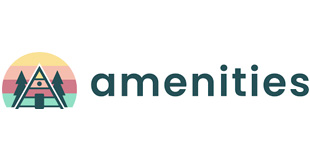NeuroFlow acquired Owl, a provider of measurement-based behavioral health care. These types of consolidations will drive the future of behavioral health care, according to NeuroFlow CEO Chris Molaro.
Behavioral health companies have been increasingly consolidating over the past few years. Amid a rising demand for mental health services, companies are combining to merge resources, expertise, software and care models.
This month, Philadelphia-based behavioral health software startup NeuroFlow announced a deal in line with this trend. The company acquired Owl, a provider of measurement-based behavioral health care.
Amid the wave of behavioral health consolidations, there are three types of deals, according to NeuroFlow CEO Chris Molaro. There are clinical services companies merging with each other, tech-enabled service companies doing the same, and deals where these two kinds of companies combine with one another, he said. NeuroFlow’s acquisition of Owl represents the last type of deal.
Founded in 2016, NeuroFlow’s goal is to incorporate behavioral health services into overall healthcare.
The company’s platform allows providers to give patients behavioral health assessments that can detect a wide range of conditions, usually starting with anxiety and depression. The platform engages with patients by giving them personalized self care activities and allowing them to log daily insights like sleep patterns and mood scores. This enables the platform to measure patients’ progress and update their risk levels.
Providers using the platform have access to AI-powered clinical decision support tools to determine the best care plan for each patient. The platform also has a triage engine that triggers an alert when a patient’s acuity level rises so that clinicians can step in to provide the right level of care.
Owl uses data to help providers deliver better measurement-based care (MBC). This refers to a method of evaluating and improving patient outcomes, oftentimes in behavioral health. MBC involves the consistent use of standardized assessments to gather data on patients’ symptoms, functioning and overall wellbeing throughout their course of treatment.
Owl works primarily with outpatient behavioral health providers, and NeuroFlow works mainly with primary care providers and health plans. With its purchase of Owl, NeuroFlow will now be responsible for more than 17 million lives on its platform. The combined company will also now support payers and providers in 50 states, Molaro said.
Before combining, the two companies already had a shared customer in Ascension, he noted. NeuroFlow serves the health system’s primary care groups, while Owl serves its psychiatry groups.
“About a year ago, we were talking with [Owl] about a potential business development deal,” Molaro declared. “But we thought it made more sense to consolidate and come together as one team and provide a bigger offering.”
To him, these types of consolidations will drive the future of behavioral health care. With such an unprecedented demand for mental health services, the market needs bigger and better solutions, Molaro said.
The Owl deal marks NeuroFlow’s second acquisition — the company bought behavioral health company Capital Solution Design last July.



